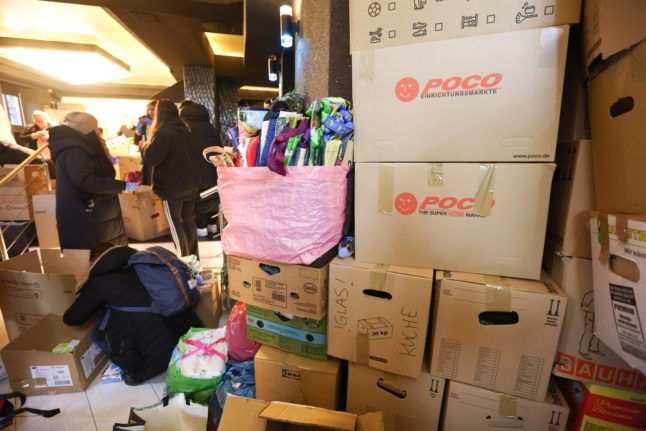The earthquake off the coast of Andalusia in southeast Spain could be felt in the provinces of Granada, Almeria and Jaén, according to the Spanish National Geographic Institute (IGN).
The earthquake hit at about 5:25pm with its epicentre north of the island of Alborán.
The European-Mediterranean Seismological Centre (EMSC) reported that an estimated 3.1 million inhabitants resided in the area where it was felt.
Estimated population in the felt area: 3.1 millions inhabitants pic.twitter.com/DqQqxJSUDa
— EMSC (@LastQuake) January 31, 2016
According to the IGN, there did not appear to be damage resulting for the tremors. Following the 4.5 magnitude quake, there were more than 20 other tremors with a magnitude of 2 or more around Alborán.
Sunday's quake is one of dozens of aftershocks following an earthquake with a magnitude of more than 6 struck in the Mediterranean last Monday.
That quake could be felt in southern Spain as well as in the Spanish enclave of Melilla bordering Morocco. It caused an estimated €12 million in damages in the North African territory and injured 26 people.
Those who felt the earthquake on Sunday reported to the EMSC hearing a rumbling and that chairs, lamps and other furniture were shaking.
“Woke me up from a siesta with slight swaying of my bed,” wrote a witness in Roquetas de Mar, Almeria.
But not everyone took Sunday's most recent earthquake very seriously. On Twitter, many people mocked the most recent earthquake's relative weakness.
Cuando te dicen que ha habido otro terremoto en Málaga… pic.twitter.com/7xaAmpn7dM
— Calimero Matas (@kalimero2) January 31, 2016
“When they tell you there's been another earthquake in Málaga…”
El antes y el después del terremoto ! Por favor ayuda ! pic.twitter.com/uj4W8tjPHj
— Fer Novato (@fer_novato) January 31, 2016
“Before and after the earthquake! Please help!”
Otro terremoto en Granada… pic.twitter.com/zphskWuNBK
— David (@DavidGraell) January 31, 2016
“Another earthquake in Granada…”



 Please whitelist us to continue reading.
Please whitelist us to continue reading.
Member comments